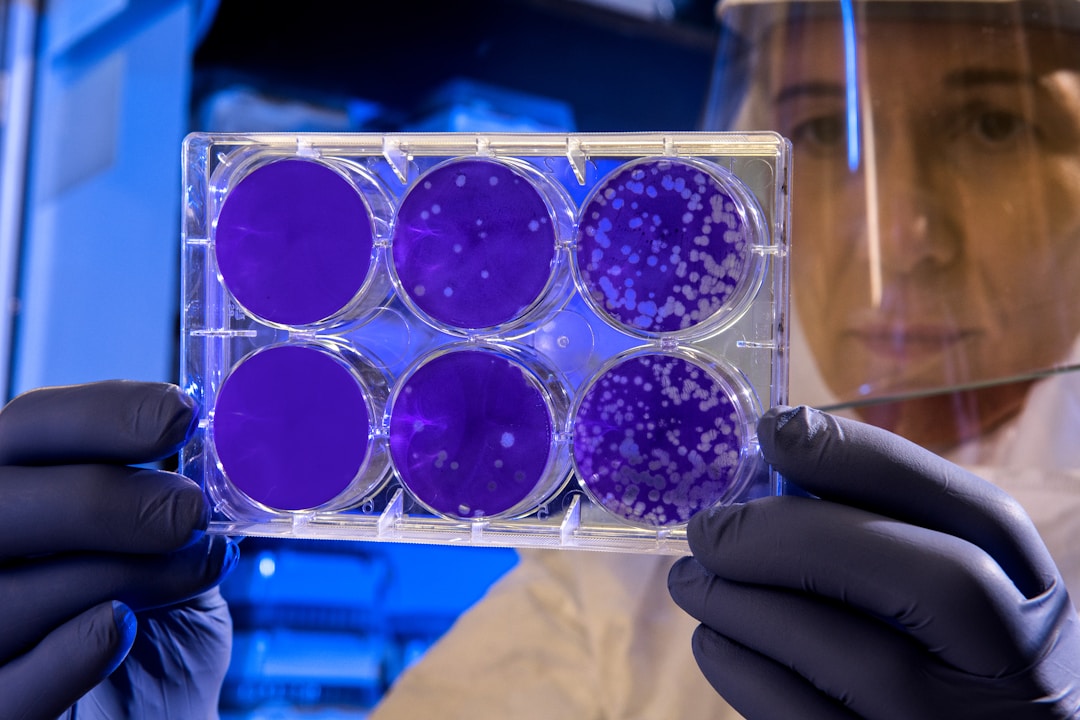We may earn money or products from the companies mentioned in this post. This means if you click on the link and purchase the item, I will receive a small commission at no extra cost to you ... you're just helping re-supply our family's travel fund.
Nicotinamide adenine dinucleotide, often abbreviated as NAD, plays a pivotal role in the cellular metabolism of almost all living organisms. From performance enhancement to combating aging, researchers continue to learn more and more about its numerous benefits. Below, we’ll highlight its function, benefits, origin, and effects on human health.
Fundamentals of NAD

NAD is a coenzyme found in all living cells. It plays a crucial role in various biological processes, including energy metabolism, DNA repair, and gene expression. NAD helps enzymes transfer electrons during metabolic reactions, converting the energy stored in food into a form that cells can use. In this way, NAD is essential for sustaining life, as it enables cells to produce the energy they need to function.
NAD exists in two forms: NAD+ and NADH. Both play crucial roles in metabolic reactions, although they have different functions. NAD+ accepts electrons and becomes reduced to NADH, which subsequently donates its electrons through the electron transport chain, resulting in the formation of ATP, the primary unit of energy in the body. In essence, the NAD+ and NADH system is a pendulum that swings to the beat of cellular processes, actively contributing to the overall energy balance of the body.
However, NAD levels can decline with age, leading to a variety of health issues, such as chronic inflammation, neurodegeneration, and metabolic disorders. NAD levels can also be reduced by various lifestyle factors, such as alcohol consumption, poor nutrition, and exposure to environmental toxins. Therefore, many researchers and healthcare providers are exploring ways to boost NAD levels to improve health outcomes. Some strategies that may increase NAD include dietary changes, physical activity, and supplementing with compounds like nicotinamide riboside, which can be metabolized into NAD. By understanding the importance of NAD and how to support its production in the body, we may be able to optimize our health and well-being at any age.
Energy Metabolism
NAD performs a critical role in metabolic processes like glycolysis, the TCA cycle, and oxidative phosphorylation. It aids in the transport of electrons and indirect facilitation of ATP synthesis, the primary cellular energy currency. It oscillates between the oxidized (NAD+) and reduced (NADH) states, whereby NAD+ receives electrons culminating in energy production while NADH confers these electrons, thereby getting expended.
Moreover, it contributes to ATP production external to the mitochondria by participating in anaerobic respiration and alcohol fermentation. It provides substrates for post-translational protein modifications such as ADP-ribosylation and deacetylation, thus concurrently affecting cell function by altering protein activity. Notably, at the mitochondrial level, NAD acts as a substrate for Sirtuins, proteins known for their involvement in cellular health and aging.
Most importantly, the total NAD: NADH ratio inside cells regulates the rate of many metabolic pathways. By impacting the complex network of metabolic reactions, NAD ultimately influences the rate at which cells convert nutrients into energy. Hence, maintaining optimal NAD+ levels might be crucial for efficient energy metabolism.
Impact on Aging

Research increasingly suggests that NAD plays a role in the aging process. As humans age, NAD+ levels decline, resulting in altered metabolism and increased susceptibility to disease. NAD+ decline affects the function of proteins like Sirtuins and PARPs, both vital for DNA repair, metabolic regulation, and response to stress. Thus, restoring NAD+ levels could potentially slow aging and reduce the risk of age-associated diseases.
Studies have shown that NAD boosters can rejuvenate tissues, improve mitochondrial function, and extend the lifespan of mice. The benefits of NAD supplementation continue to be investigated, with a focus on delaying the aging process and treating age-related diseases. Recently, experiments on mice fed with NAD-boosting supplements exhibited promising results related to improved organ function, increased physical performance, better glucose metabolism, and extended lifespan.
However, most research has been conducted on animals, and the benefits of NAD boosters for humans are yet to be fully determined. Nevertheless, the preliminary findings have sparked an interest in potential NAD supplementation as a key to vitality and healthy aging.
Detecting and Treating NAD Deficiency
As discussed, the aging process can create a decline in NAD levels. However, it can also be induced by various conditions, including metabolic stress and damage to the DNA. This results in fatigue, reduced muscle performance, and the inability to harness energy from food. Restoring NAD levels is the focus of scientists looking to counteract the consequences of NAD deficiency.
Many promising strategies to increase NAD+ levels are under investigation, with nicotinamide riboside (NR) and nicotinamide mononucleotide (NMN) as front-runners, both of which have been shown to raise NAD+ levels in various tissues and counteract signs of aging in animals. However, high-quality human studies require further research.
As NAD plays such a crucial role in the body’s energy production and overall health, detecting and addressing deficiency is essential. To this end, a set of biomarkers indicating NAD+ status is under evaluation, which could pave the way for effective diagnostics and therapeutic strategies in the future.
The Possible Risks Associated with NAD
While the benefits of NAD are becoming clearer, there are potential risks associated with its supplementation. Some people may experience side effects like nausea, fatigue, headaches, and insomnia from NAD supplements. However, as high-quality research into NAD supplementation’s direct effects on human health is in the early stages, no comprehensive list of potential risks can currently be furnished.
Furthermore, there is the question of dosage. There is no established optimal dosage for NAD supplementation, and it is not clear if higher levels are beneficial or potentially harmful. Until further research is conducted, it is recommended to consult with a healthcare provider before beginning any NAD+ supplementation regimen.
Despite the potential benefits of restoring NAD+ levels, self-supplementation without medical consultation and guidance might pose health hazards. Consequently, awareness and understanding of potential risks associated with NAD supplementation are essential to fully harness its benefits and manifest its potential therapeutic effects.
Myths and Misconceptions about NAD
Despite the increasing interest and growing body of research surrounding NAD, several misconceptions linger. One of the most common misunderstandings is that NAD is a magic pill for aging. As alluring as it might appear, it’s critical to combine it with a well-balanced diet, regular exercise, adequate sleep, and other lifestyle factors that contribute to overall health and well-being.
Similarly, there are misconceptions about NAD’s role in weight loss. Many falsely believe that by increasing NAD+ levels, one can lose weight without any dietary changes or exercise. However, while NAD+ plays a role in energy metabolism, it does not directly lead to weight loss.
Lastly, the belief that “more is always better” often prompts people to take excessive amounts of NAD supplements. The optimum dosage and long-term safety of NAD+ supplementation in humans remain to be elucidated by scientific studies. It is worth noting that while insufficient levels may lead to health problems, an excess might not necessarily be beneficial.
The Future of NAD in Health and Medicine

The exploration of NAD has opened up an exciting new avenue of research and innovation in the health and medical sector. Ongoing scientific studies are expanding our understanding of the benefits of maintaining NAD+ levels for the treatment and prevention of countless diseases, potentially including forms of cancer, heart disease, neurodegenerative conditions like Alzheimer’s, diabetes, and more.
More specifically, the prospect of leveraging NAD+ in the pursuit of anti-aging applications is one of the forefronts of research at this time. Multiple studies are investigating the possibilities of NAD-boosting treatments to prolong life expectancy and improve quality of life into old age.
With the potential of NAD+ to enhance wellness and combat illnesses, it stands to promise a future of therapeutic advancements. However, more research is indispensable to validate the safety and efficacy of NAD supplementation, opening up an exciting field for scientists and medical practitioners in the years ahead.
Altogether, NAD’s potential to drive significant improvements in human health and longevity is promising. Yet, with much still to be learned, a cautious, research-driven approach is crucial to fully harness its healthful power.
Leave a Reply